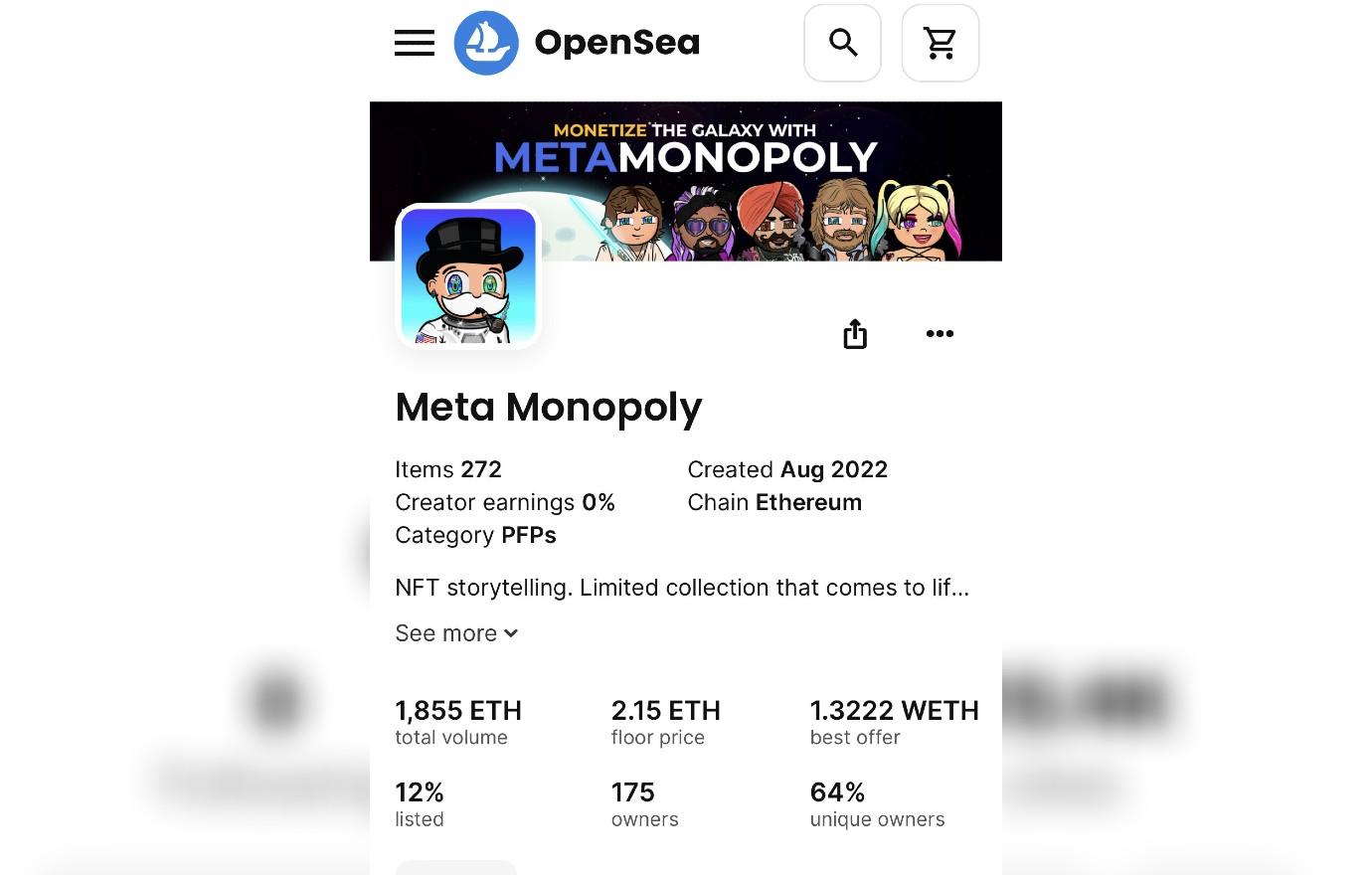The FTC's Evolving Strategy Against Meta's Monopoly

Table of Contents
The FTC's Initial Antitrust Actions Against Meta
The Early Focus on Acquisitions
The FTC's early attempts to curb Meta's growth focused on blocking its acquisitions. The agency has a history of challenging mergers and acquisitions that could stifle competition, but success has been mixed.
- Instagram Acquisition (2012): The FTC investigated the acquisition but ultimately did not challenge it, a decision that has since been heavily scrutinized. Arguments centered around concerns that the acquisition would eliminate a major competitor in the photo-sharing market.
- WhatsApp Acquisition (2014): Similar concerns arose regarding the WhatsApp acquisition, with the FTC again investigating but ultimately not preventing the deal. The argument revolved around the potential for Meta to leverage WhatsApp's user base to enhance its already dominant position. This case highlighted the complexities of antitrust law in rapidly evolving digital markets.
- Other Acquisitions: Meta has undertaken numerous smaller acquisitions, many of which faced less scrutiny. However, these smaller acquisitions, when viewed cumulatively, demonstrate a pattern of aggressive expansion.
These early cases illustrate the difficulties of proving anti-competitive behavior related to mergers and acquisitions, particularly within the fast-paced digital market where market definitions can be fluid and rapidly changing. The FTC's early focus on these antitrust lawsuits reveals the nascent understanding of the long-term implications of allowing unchecked growth of powerful digital platforms.
Shifting Legal Strategies
The FTC's approach has matured since these early acquisitions. The initial focus on individual acquisitions has broadened to encompass broader concerns about Meta's overall market dominance and anti-competitive business practices. The agency's legal strategies are becoming more sophisticated, focusing on the interplay between data collection and market power.
- Data-centric lawsuits: Recent actions place increased emphasis on Meta's data collection practices, framing them as anti-competitive behavior.
- Network Effects Exploitation: The FTC is now scrutinizing how Meta leverages network effects to entrench its dominance, making it harder for smaller competitors to enter the market.
- Increased Collaboration: The FTC is increasingly collaborating with other regulatory bodies, both domestically and internationally, to coordinate enforcement actions against large tech companies.
The Focus on Data Collection and Privacy Concerns
Data Monopoly and Anti-Competitive Practices
A significant shift in the FTC's strategy centers on Meta's vast data collection practices. The Commission argues these practices are not only privacy violations but also contribute to Meta's monopolistic grip.
- Targeted Advertising: The FTC is concerned about Meta's ability to use its massive data trove to deliver highly targeted advertising, effectively creating a significant barrier to entry for competitors. This data-driven advantage allows Meta to outcompete smaller advertisers.
- User Data as a Moat: Meta's access to detailed user data gives it an unparalleled understanding of consumer behavior, allowing for unparalleled precision in its advertising. This constitutes a powerful, self-reinforcing competitive advantage.
- Algorithmic Bias: Concerns are also rising about potential algorithmic bias in Meta's advertising systems, creating further competitive disadvantages for certain groups or businesses.
These concerns highlight the increasingly important role of data in maintaining market dominance within the digital economy.
The Role of Data in Maintaining Monopoly Power
Meta's alleged use of data to maintain its monopoly stems from the powerful network effects inherent in its platforms. The more users Meta has, the more data it collects, strengthening its targeted advertising capabilities, thus attracting even more users.
- Network Effects: The more people use Facebook, Instagram, and WhatsApp, the more valuable these platforms become. This creates a powerful barrier to entry for new competitors.
- User Lock-in: The integrated nature of Meta's ecosystem creates user lock-in, making it difficult for users to switch to alternative platforms.
- Barriers to Entry: The immense data advantage, combined with network effects and user lock-in, creates substantial barriers to entry for new competitors, reinforcing Meta's market dominance. This situation effectively creates an unfair advantage.
Emerging Challenges and Future Directions for the FTC
The Metaverse and Potential New Monopolies
Meta's significant investment in the metaverse represents a new frontier for the FTC's antitrust concerns. The agency must navigate the complexities of regulating this nascent technology to prevent the formation of new monopolies.
- Uncertain Regulatory Landscape: The metaverse is a rapidly evolving space, presenting significant challenges in defining markets and establishing clear regulatory frameworks.
- Potential for New Lock-in: Meta's early dominance in the metaverse could lead to a new wave of user lock-in, further entrenching its monopolistic position.
- Interoperability Concerns: Ensuring interoperability between different metaverse platforms is crucial to avoid the creation of walled gardens controlled by a single entity.
The FTC will need to develop new tools and strategies to address the challenges posed by the metaverse and prevent the emergence of new monopolistic practices.
International Cooperation and Global Regulation
Effectively regulating powerful tech companies like Meta requires international cooperation and harmonization of regulatory frameworks. The global nature of these platforms necessitates a coordinated approach.
- Data Sovereignty: The issue of data sovereignty complicates the regulatory landscape, creating conflicting interests between jurisdictions.
- International Antitrust Enforcement: International collaboration is crucial to ensure consistent enforcement of antitrust laws and to prevent regulatory arbitrage.
- Cross-border Data Flows: Regulating cross-border data flows poses a major challenge, requiring agreements between nations to ensure data privacy and competition are protected.
Conclusion
The FTC's strategy against Meta's alleged monopoly has evolved considerably, shifting from a focus on individual acquisitions to a broader concern encompassing data collection, market dominance, and the emerging metaverse. The key takeaways highlight the complexities of regulating powerful tech companies and the importance of robust antitrust enforcement, particularly in rapidly evolving digital markets. The FTC faces significant challenges in navigating the complexities of the digital economy, requiring innovative legal strategies and international collaboration. The battle against Meta's dominance in the digital market is far from over. Stay updated on the latest developments in this crucial fight to protect competition in the digital market and ensure a fair and open digital landscape for all.

Featured Posts
-
 Selling On E Bay Vinted Or Depop Understand Hmrcs Nudge Letters
May 20, 2025
Selling On E Bay Vinted Or Depop Understand Hmrcs Nudge Letters
May 20, 2025 -
 Cours D Ecriture A L Ia Hommage Ou Plagiat D Agatha Christie
May 20, 2025
Cours D Ecriture A L Ia Hommage Ou Plagiat D Agatha Christie
May 20, 2025 -
 Peterborough Uniteds Record Breaking Efl Trophy Win Darren Fergusons Reaction
May 20, 2025
Peterborough Uniteds Record Breaking Efl Trophy Win Darren Fergusons Reaction
May 20, 2025 -
 4eme Pont D Abidjan Clarifications Sur Le Projet Et Son Budget
May 20, 2025
4eme Pont D Abidjan Clarifications Sur Le Projet Et Son Budget
May 20, 2025 -
 Todays Nyt Mini Crossword Answers For March 22
May 20, 2025
Todays Nyt Mini Crossword Answers For March 22
May 20, 2025
